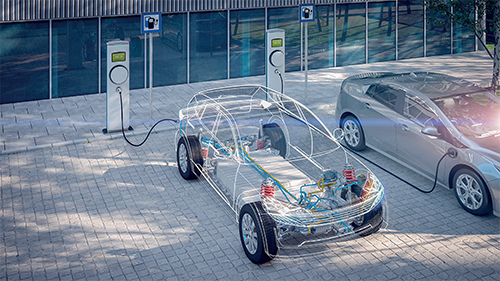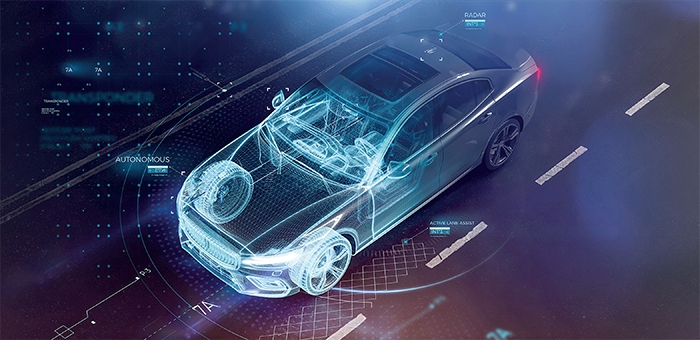Is the UK ready for the Electric Vehicle revolution? Steve McEvoy reports
A new era
The urgency around climate change has continued to increase over the last few years, with the EU focusing heavily on transforming Europe into a modern, more sustainable economy. The recent European Green Deal is the foundation of this urgency and 2022 has seen more policies introduced to support its goals.
Consumer demand is one of the reasons for the increase in green policies. A recent IBM study found that 51 percent of consumers say environmental sustainability is more important to them than it was 12 months ago.
 One of the major emissions cuts that consumers are making themselves involves reducing their carbon footprint through greener modes of transport. The study reveals that four out of ten who care deeply about the environment say that their environmental concerns compelled them to reduce or eliminate travel by traditionally powered private cars and planes in the last year. And almost half of all travelers increased their use of Electric Vehicles (EVs) for the same reason.
One of the major emissions cuts that consumers are making themselves involves reducing their carbon footprint through greener modes of transport. The study reveals that four out of ten who care deeply about the environment say that their environmental concerns compelled them to reduce or eliminate travel by traditionally powered private cars and planes in the last year. And almost half of all travelers increased their use of Electric Vehicles (EVs) for the same reason.
Despite the current cost-of-living crisis and soaring electricity prices, sales of EVs have increased in Europe over the last year, with many UK drivers opting for battery or EVs. And for now at least, consumers can still save money while running an EV, which is cheaper than driving a petrol car, even with the rising electricity prices.
Yet, the IBM study reveals that there are still several barriers preventing consumers from making more sustainable travel choices, such as cost and accessibility.
So, what can the automotive industry do to ensure it is ready for the switch to EVs?
Moving to the green lane
With the UK government announcing that sales of all new petrol and diesel cars and vans will cease by 2040, as part of its ‘Clear Air Strategy’, the automotive industry is under pressure to innovate.
EVs are more efficient when being driven, they waste less energy and thereby reduce the amount of air pollutants released, which means everyone benefits from cleaner air and quieter cities.
With Net Zero on the horizon, the automotive industry is at full throttle – developing automated, electrical vehicles with sustainability at the forefront of the thinking.
However, the race to adopt EV as the primary choice for personal transport could lead to significant infrastructure challenges if we do not diversify and offer alternative green fuels.
Infrastructure and supply issues
The increase in demand on the grid caused by the increase in EVs has the potential for major disruption.
Without careful planning, the grid will struggle to charge large numbers of EVs simultaneously as the strain it will put on the network has the potential to cause blackouts during ‘peak’ charging times. In addition, our reliance on imported energy to meet supply requirements is currently impacted by geopolitically motivated supply issues, further reducing the grids’ capability to meet a surge in demand from EVs.
The industry therefore needs to create ‘smart’ charging systems that integrate seamlessly with the existing infrastructure and that use less energy – while ensuring EVs are an affordable option for consumers.
We need to consider the alternatives
The long-term benefits of EV ownership are now being rocked by rising prices in the electricity markets, and the rare materials needed to produce high performance automotive batteries continue to rise in price. This is likely to make EV a more expensive option over time, reducing its attractiveness and creating a new problem for the industry to address.
And while current investment is focused on adapting infrastructure to EVs, leaders in both the energy and automotive industry agree that hydrogen power offers game-changing potential due to its storability and transportability.
The use of hydrogen continues to grow, and it is already being used in aviation for container ships (H2 ships) and in the industrial sector for carbon-free steel production. Hydrogen really could provide the flexibility and the reassurance the automotive industry needs, but there remains some uncertainty due to infrastructure challenges and issues surrounding the production of green hydrogen. Although hydrogen buses are now operating in some cities in the UK (particularly London), the majority do not use green hydrogen – which somewhat defeats the point of the ‘emission free’ bus.
Although aware of the potential, the UK E&U industry seems cautious about committing to developing scalable hydrogen infrastructure and supply to support its use as a fuel for automotive. Although the technology is available, without significant investment in the infrastructure needed to produce, store and transport green hydrogen, manufacturers will continue to have their doubts.
There is still work to be done
Although it’s evident that we need to develop national hydrogen infrastructure for EV to meet transport requirements, the first step towards this is greater collaboration between the government, automotive and utility industries. Only by working together can we address the big issues, developing diversified solutions across e-mobility and hydrogen, that benefit both the consumer and the infrastructure – while also addressing the Net Zero challenge.
As we move into the new era of mobility and sustainability, it is important for those of us in the automotive industry to collaborate with others, finding opportunities to speed up the transition to EVs, support environmental targets, and improve accessibility to emerging technologies.
For a list of the sources used in this article, please contact the editor.
Steve McEvoy
www.expleo.com/global/en/
Steve McEvoy is Vice President – Automotive at Expleo, a global engineering, technology and consulting service provider that partners with leading organizations to guide them through their business transformation, helping them achieve operational excellence and future-proof their businesses. Expleo benefits from more than 40 years of experience developing complex products, optimizing manufacturing processes, and ensuring the quality of information systems.
